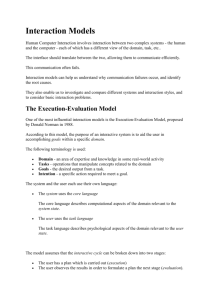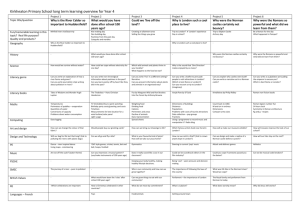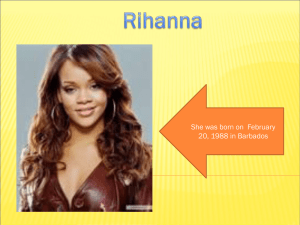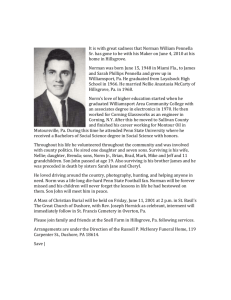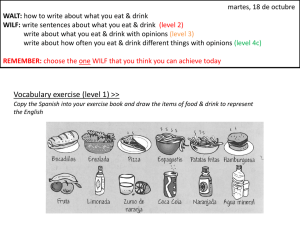Bebo Norman - BEC Recordings
advertisement
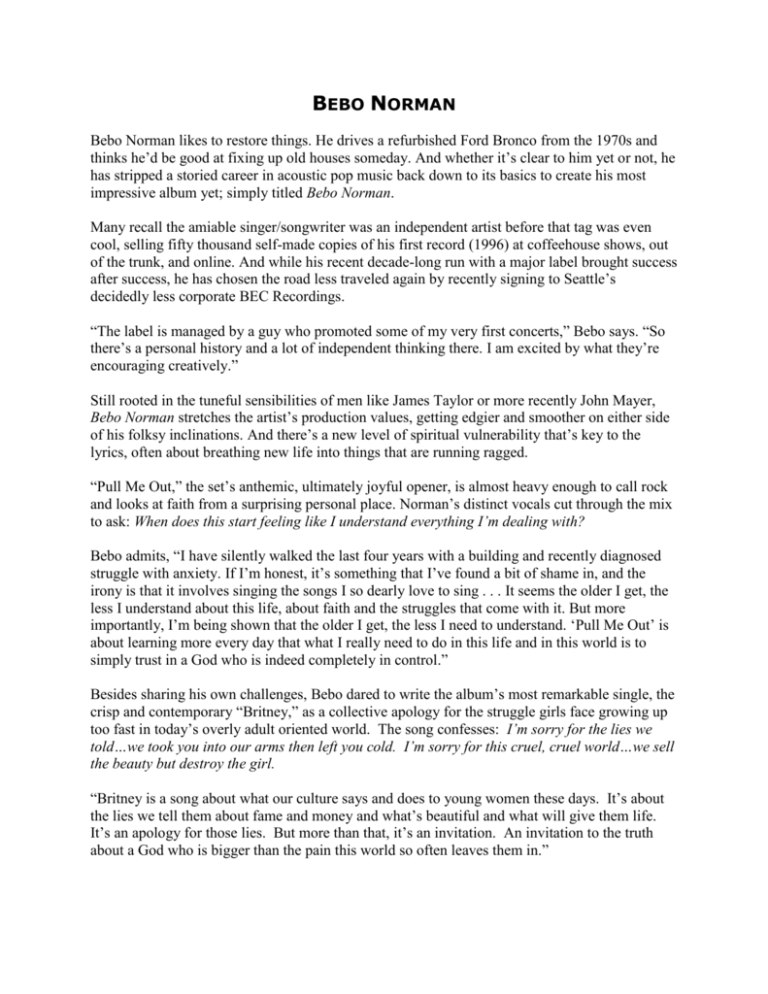
BEBO NORMAN Bebo Norman likes to restore things. He drives a refurbished Ford Bronco from the 1970s and thinks he’d be good at fixing up old houses someday. And whether it’s clear to him yet or not, he has stripped a storied career in acoustic pop music back down to its basics to create his most impressive album yet; simply titled Bebo Norman. Many recall the amiable singer/songwriter was an independent artist before that tag was even cool, selling fifty thousand self-made copies of his first record (1996) at coffeehouse shows, out of the trunk, and online. And while his recent decade-long run with a major label brought success after success, he has chosen the road less traveled again by recently signing to Seattle’s decidedly less corporate BEC Recordings. “The label is managed by a guy who promoted some of my very first concerts,” Bebo says. “So there’s a personal history and a lot of independent thinking there. I am excited by what they’re encouraging creatively.” Still rooted in the tuneful sensibilities of men like James Taylor or more recently John Mayer, Bebo Norman stretches the artist’s production values, getting edgier and smoother on either side of his folksy inclinations. And there’s a new level of spiritual vulnerability that’s key to the lyrics, often about breathing new life into things that are running ragged. “Pull Me Out,” the set’s anthemic, ultimately joyful opener, is almost heavy enough to call rock and looks at faith from a surprising personal place. Norman’s distinct vocals cut through the mix to ask: When does this start feeling like I understand everything I’m dealing with? Bebo admits, “I have silently walked the last four years with a building and recently diagnosed struggle with anxiety. If I’m honest, it’s something that I’ve found a bit of shame in, and the irony is that it involves singing the songs I so dearly love to sing . . . It seems the older I get, the less I understand about this life, about faith and the struggles that come with it. But more importantly, I’m being shown that the older I get, the less I need to understand. ‘Pull Me Out’ is about learning more every day that what I really need to do in this life and in this world is to simply trust in a God who is indeed completely in control.” Besides sharing his own challenges, Bebo dared to write the album’s most remarkable single, the crisp and contemporary “Britney,” as a collective apology for the struggle girls face growing up too fast in today’s overly adult oriented world. The song confesses: I’m sorry for the lies we told…we took you into our arms then left you cold. I’m sorry for this cruel, cruel world…we sell the beauty but destroy the girl. “Britney is a song about what our culture says and does to young women these days. It’s about the lies we tell them about fame and money and what’s beautiful and what will give them life. It’s an apology for those lies. But more than that, it’s an invitation. An invitation to the truth about a God who is bigger than the pain this world so often leaves them in.” Such standout moments are just one slice of an uncommonly strong album that attaches fresh new thoughts to every track. Elsewhere on Bebo Norman, the namesake renews his elemental views on prayer to God and commitment to his wife of five years, Roshare. The creative worship pop/rock of “Hear It from Me” expresses in strangely inspiring terms that it’s all been done before when it comes to how we communicate with God, but doing so is no less important in light of that. “There will always be giants of the faith who have gone before me, spoken more eloquently, sung more beautifully, and prayed more poignantly,” Bebo says. “But as I struggle to feel adequate enough to even approach Him, in some miraculous way I’m reminded that the God of the universe thinks my prayers are nothing less than stunning—simply because I am His.” Longtime fans will enjoy the familiar unplugged shuffle of “Not Living In the In-Between,” an easygoing sing-along about how to live out real devotion to one another. “I owe this song to my wife for what I’ve learned from being loved by her,” explains Norman. “She takes all the confusion and information and pop culture psychology about love and just reduces it to what it really is: a simple promise that she refuses to break.” Indeed, there is much for Bebo Norman to celebrate: his marriage, a one-year-old son Smith, and an exciting new chapter in a career that has always moved in the right direction. Amazon.com voted his Big Blue Sky disc the #1 Christian album of 2001. Myself When I Am Real earned seven Dove Award nods and charted the defining hit “Great Light of the World” in 2002. Between the Dreaming and the Coming True (2006) gained a near-perfect score at ChristianMusicToday.com which called it “his best.” But as the new album reminds the listener at every turn, it all hinges on “realizing that faith is not about what we accumulate or accomplish spiritually, but simply a desperate clinging to Christ.” Bebo speaks those words to describe “Ruins,” the centerpiece song on the record that blends his acoustic origins, stadium sized choruses, and a newfound knack for cinematic arrangements. Like something from a motion picture’s most pivotal scene, “Ruins” emerges as a single guitar part, then adds a gripping doubled vocal, and soon becomes a full blown musical epiphany: this is my holy hour, this is my world on fire, this is my desperate play, this is where I am saved. Let my ruins become the ground you build upon, let my ruins become the start. “I like that every song, in one way or another, speaks to that theme of rebuilding from brokenness,” Bebo says. “We definitely ended up making a record that I’m proud of . . . I like that we took the core of where I come from as a writer and made it feel new again.” ###
